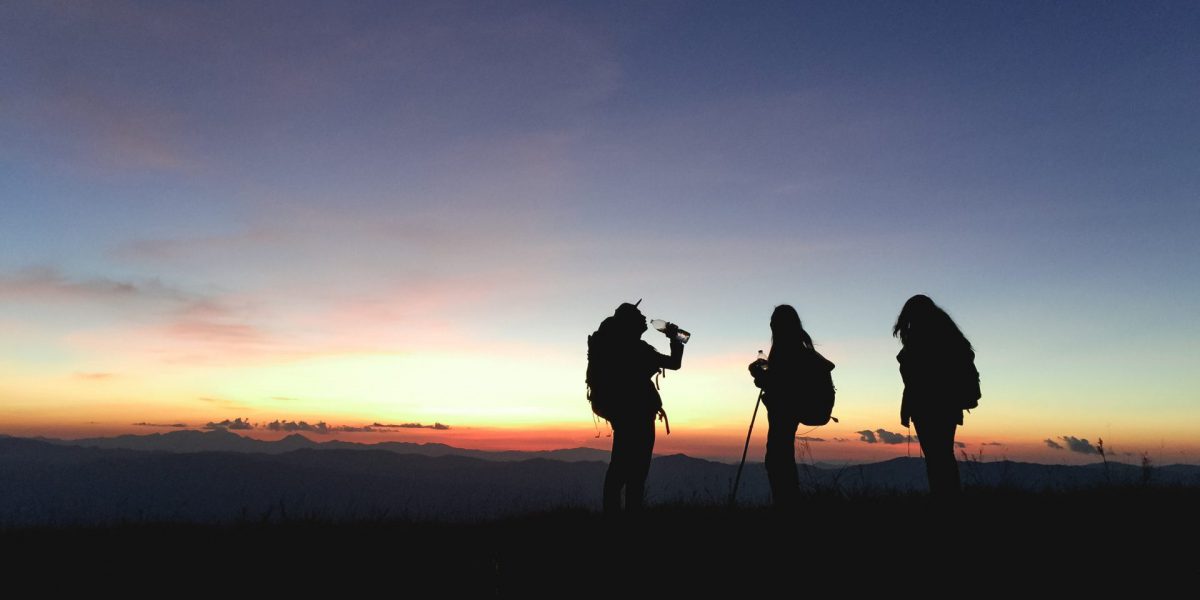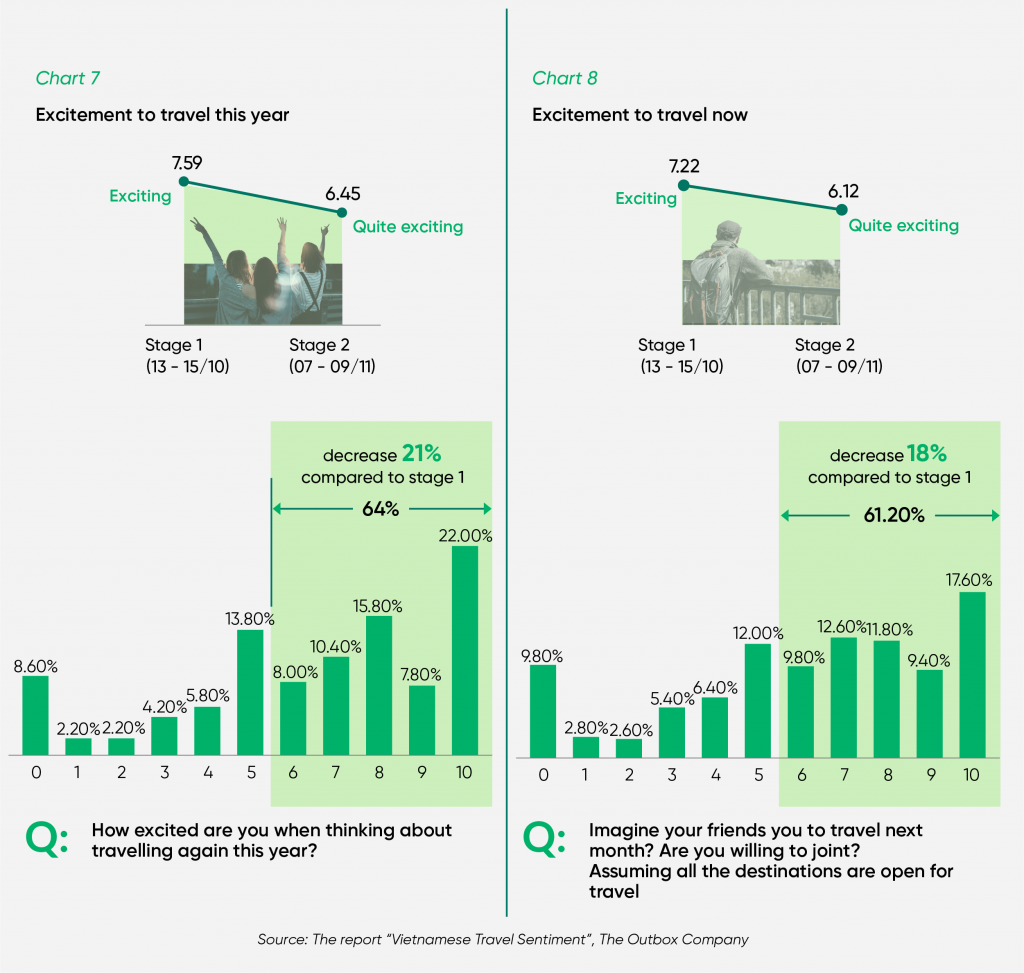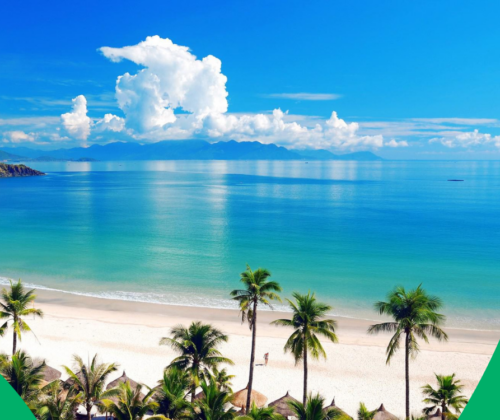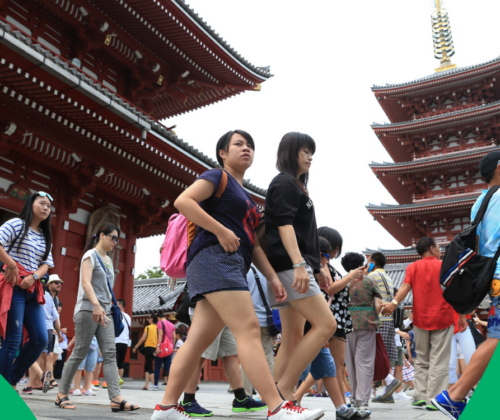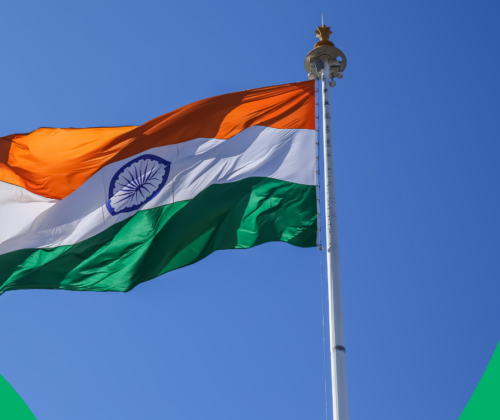Under the impact of the Covid-19 epidemic, the attitudes and behaviors of consumers in general and tourists, in particular, have all changed, and become more unpredictable. In the current context, although travel restrictions are gradually lifted in Vietnam, international tourism is still a long way from recovery. Therefore, understanding and boosting domestic tourism demand is the key to partially make up for the losses as well as leverage to restart the tourism activities.
Recently, The Outbox Company (Outbox), travel & hospitality market research firm, conducted research and released the report “Vietnamese travel sentiment” to give a more comprehensive view of Vietnamese travel readiness and intentions in the new era.
The study is carried out in 2 phases. Phase one was conducted from 13th-15th, October 2021, when the whole country has just eased the social distancing to understand the readiness of travelers as well as the awareness of traveling at the time when life has just been normal again. Phase two was conducted from 7th-9th, November 2021, when life has become normal after a period of time, to understand the changing in readiness of travelers as well as their perception towards traveling at that time.
Vietnamese travel sentiment tends to fall down
Overall, after a period of closure, social distancing, rapid spread as well as new variants of the epidemic, many people gradually hesitate to go to crowded places. According to Outbox’s report, although travel restrictions are gradually eased across Vietnam, the time for Vietnamese travelers to confidently travel again will be in the second quarter of 2022 as soonest.
Main factors impacting Vietnamese travel sentiment currently include concerns of personal finances and health, changes in mind about traveling, excitement and openness for travel information.
Obviously, the pandemic has caused terrible economic and financial consequences for countries, businesses, industries in general and individuals in particular. That’s why finance is one of the major factors that directly affect the willingness to travel of many people. However, according to the report, a bright spot in this trend is that travelers are becoming more optimistic about their financial situation, although still at a very modest degree. Outbox’s research showed that the number of travelers who are worried about the effects of the pandemic on their finances decreased by 9.4% compared to the results in phase 1.
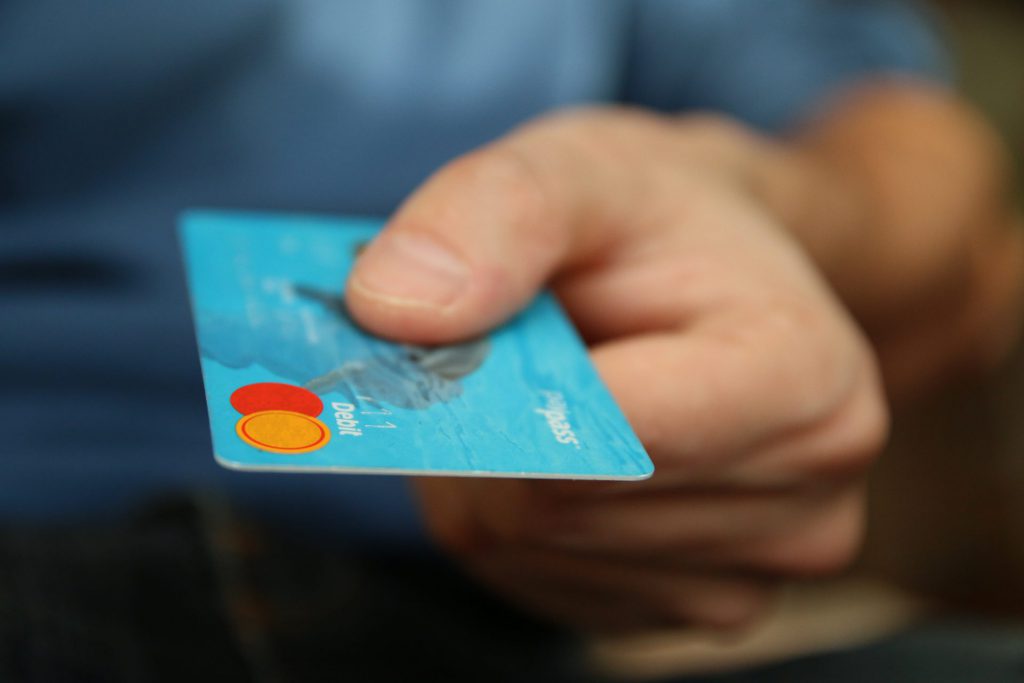 Life begins to return to normal, alongside wide and fast vaccination coverage has made travelers less concerned about the impact of the disease on personal health. The number of travelers choosing the health concern related to the epidemic in phase 2 reduced by 6.6% compared with phase 1.
Life begins to return to normal, alongside wide and fast vaccination coverage has made travelers less concerned about the impact of the disease on personal health. The number of travelers choosing the health concern related to the epidemic in phase 2 reduced by 6.6% compared with phase 1.
Although financial and health concerns have been somewhat lower, travelers’ optimism and enthusiasm for travel are on a downward trend over time. Findings from the study showed that travelers are more likely to be hesitant to think about travel in the future. During the mid-October period, the travel restriction restrained the travelers’ psychology, thus, the desire for moving freely also increased at that time. On top of that, lockdown diminishing is also a sign to show that the pandemic has turned into a more positive direction. Therefore, when life returns to normal, people always think they are “quite ready” for traveling again. However, after a period of gradually returning to “orbit”, people began to be more hesitant to travel. In particular, the number of travelers choosing to delay their trips also increased by 7.4% in phase 2.
The increased hesitation to travel has led to a decrease in the excitement. In phase 1, when the easing of restrictions was just applied, the excitement level for traveling was high. But over time, the excitement for traveling gradually decreased.
Changing of Vietnam travelers’ mindsets is also reflected in the degree of openness in seeking, receiving travel information and promotions from destinations and travel companies. In particular, in phase 1, travelers are proactive and very open to receive travel information as well as travel products. However, the decreasing level of excitement for traveling also makes travelers less interested in receiving information in the second stage of the survey (down 18.2% compared to phase 1).
Overall, the sentiment index of travelers is decreasing and staying at the consideration stage, which needs a lot of time to actually travel again. Therefore, policies and activities to stimulate the demands along with messages that help reduce concerns about travel should be implemented at the right time in order to properly grasp the psychology and needs of Vietnamese tourists in the new period.
But still keeping travel plans in mind
Travelers’ sentiment index is clearly reflected in the choice of time to travel again. In phase 1, with high sentiment index level, they thought Tet would be a good time to be able to travel again. Meanwhile, in phase 2, travelers tend to delay their trips after Tet holiday (March – June 2022).
According to the report, it is still a long way for international tourism to recover as all travelers in both stages agree that they will only return to travel abroad once the pandemic is controlled. Therefore, until then, domestic tourism will still play an important role in tourism recovery.
Most travelers nowadays prefer to travel to beach destinations or resorts.
Due to the impact of the pandemic, travelers tend to skip the popular and crowded destinations to choose more private places to relax or discover new, unique and interesting destinations instead.
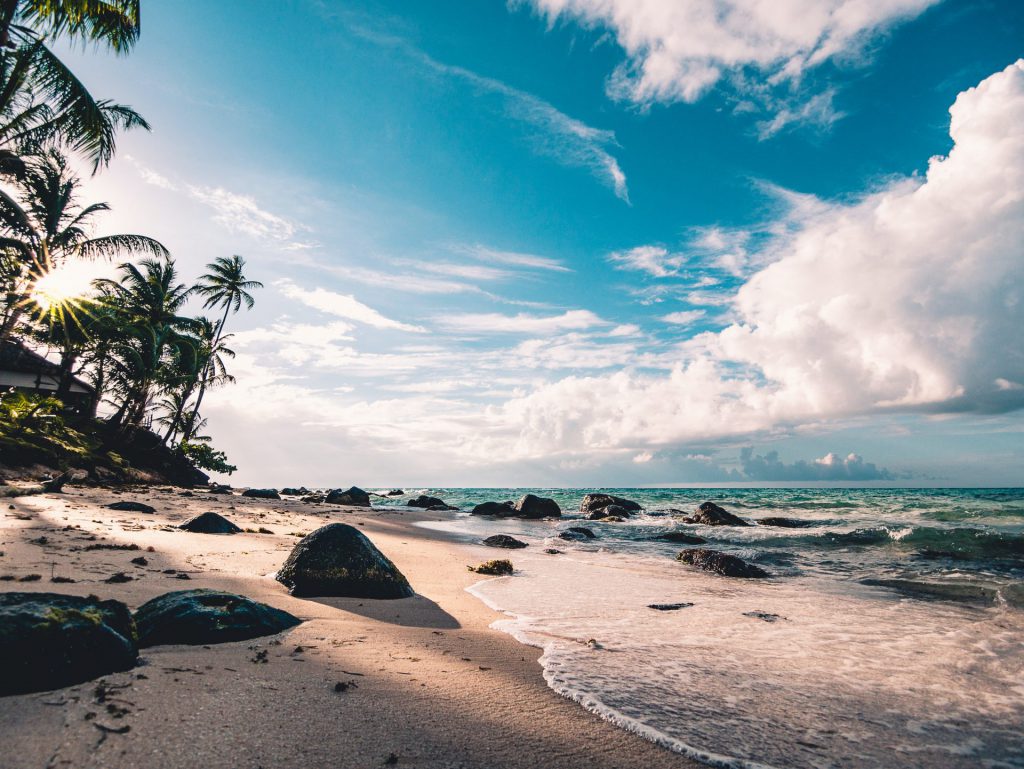
Through the survey, it can be seen that the willingness to travel of Vietnamese tourists is decreasing. However, the good news is that they have eased their financial and health concerns thanks to high vaccine coverage and the new normal. They also keep the intention to travel domestically in mind, despite limiting going to crowded places. Agencies, destinations, and travel businesses can develop policies, products or campaigns with the right message to increase visitor confidence, as well as ensure safety and experience for them in the new time.
Destination Review
